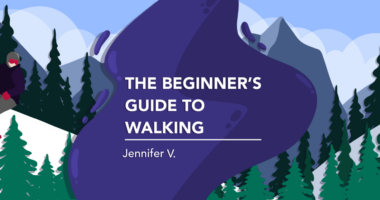The secret to success with NMOSD is preparation
How readiness helps us protect ourselves and solve our problems

I’ve been trying to stay active, but after a long family bike ride, I was exhausted. I opened my fridge looking for a fast and easy snack and audibly cheered when I found the strawberries I’d washed, chopped, and neatly placed into Tupperware earlier that day. Had I not found those strawberries, next I would’ve perused our snack cupboard, no doubt choosing something unhealthy.
In such moments, I recognize the secret to success is preparation. But how can we patients with neuromyelitis optica spectrum disorder (NMOSD) accomplish that preparation?
My struggles and solutions
I have a bad habit of forgetting to order my Enspryng (satralizumab-mwge) on time. It’s been my wonder drug for almost three years now, and I believe it’s keeping me alive — and more importantly, letting me live so that I rarely think much about NMOSD until my symptoms flare.
I need to improve on making those orders, and I also need to better prepare myself for my monthly injections. How can I do that? By setting alerts in my calendar to order my medication, and by blocking off a few days after the injection in case I’m feeling sore or tired.
Those aren’t all my necessary preparations, though. I also need to have an updated card in my wallet with the list of medications I’m on and the dosage. And when I’m at medical appointments with less regular providers, such as a dentist, they always want to confirm that list.
While I can recall each medication and the number of pills I take, I always struggle with the dosage. The Sumaira Foundation once offered a hospital tote bag with a helpful checklist for what to bring. They also had an NMOSD information card because we’re those unicorn patients who walk into emergency rooms with a disease that no one has ever heard of. Both are easy ideas, and patients can duplicate them on their own.
Other preparations help me lessen the effect of triggers. By now, for instance, I know how my body will react to heat or steroids, and respond to my physical limitations. The upfront effort in these cases will always save me down the road.
For the heat, as many days here in Toronto are hotter than Hades, I know I should go outside to check on my garden only in the early morning or after dinnertime.
As for the steroids, there’s not much I can do when my medical team puts me on them, but consuming nutritious foods gives me some control over the amount of weight I gain. Breaking up with unhealthy sugar, even natural sugar, is incredibly difficult, but I know I can wean myself off of it with shifts such as baking with maple syrup and using stevia sweeteners in my morning cup of tea.
For some of us NMOSD patients, our disease is often invisible. I have a parking permit for disabled spaces because many days I run out of “spoons,” or energy, and have to conserve as much as possible. Patients, including myself, have been yelled at for parking in those spaces by vigilantes who genuinely believe they’re protecting the spots for those in need. These confrontations used to upset me because my medical condition wasn’t their business.
With age, however, I’ve calmed down somewhat; I recognize people mean well, even if their assumptions are incredibly ignorant. It’s therefore helped me to prepare a response for those inevitable attacks. Knowing what I might say and in what tone has saved me a couple of times now, and honestly, I’m always a little satisfied when they walk away, their face red with embarrassment.
I’m curious how other patients prepare themselves for success while living with NMOSD. Please share any ideas in the comments below.
Note: Neuromyelitis News is strictly a news and information website about the disease. It does not provide medical advice, diagnosis, or treatment. This content is not intended to be a substitute for professional medical advice, diagnosis, or treatment. Always seek the advice of your physician or other qualified health providers with any questions you may have regarding a medical condition. Never disregard professional medical advice or delay in seeking it because of something you have read on this website. The opinions expressed in this column are not those of Neuromyelitis News or its parent company, Bionews, and are intended to spark discussion about issues pertaining to neuromyelitis optica spectrum disorder (NMOSD).







Leave a comment
Fill in the required fields to post. Your email address will not be published.